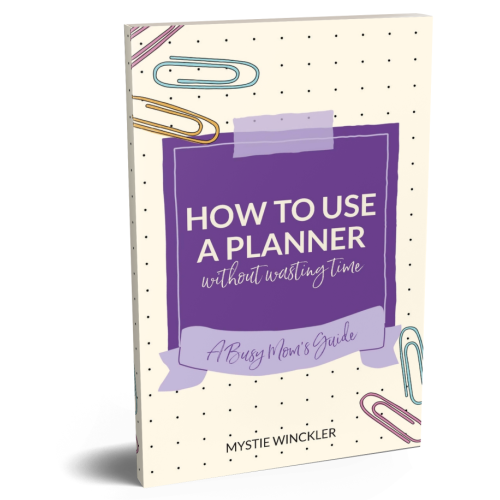Have you ever come upon the end of your week and wished you had just one more day. One more day would have been enough, we tell ourselves, to finish out our to do list for the week. Sounds similar to coming to the twenty-fifth of the month and wishing for just another hundred dollars for the close of the month.
However, where raises might come, we all get the same allotment of time and it won’t ever change.
Just like Dave Ramsey has you use cash envelopes for your spending budgets, we can reserve envelopes of time for our various responsibilities across the week to help things “come out even.”
As Laura Vanderkam writes in her book 168 Hours: You Have More Time Than You Think:
While 168 hours is a lot of time, time is still, in the broader sense, a nonrenewable resource. These hours still have to be carefully budgeted in order to turn the life you have into the life you want.
And when we have this big picture view of our week we also have a clearer vision of how we’re spending our time and if that matches up with our priorities.
However, a time budget is not a schedule.
Rather than scheduling 20 minutes for folding laundry, 10 minutes for sweeping, and so forth for every task we have on our list, we can look at our days and weeks as a whole and reserve chunks of time for types of tasks. Then when that chunk of time begins, we can assess the current state of things and decide what comes first and what’s next.
A week is never going to play out the way we budget our time, but it’s still a valuable exercise because as we mark out the time commitments we have, we start to see where we have margin, where we need to create margin, and perhaps why things like grocery shopping or phone calls are so stressful – there’s no place for them in the flow of our week!

A few years ago I had a time budget problem. Groceries have to be procured, but I didn’t have a place for it on the plan. I thought I had enough margin built in for it to just happen whenever it needed to happen. I did have margin built in. But grocery shopping is rather essential and regular, and so needed a regular and reserved spot in the plan. Just as with a money budget, when I wasn’t reserving any time for grocery shopping, it always felt like I was skimping and scraping to make it happen rather than doing the right thing at the right time.
Having a time budget helps us be confident in what we are doing, because we know it’s the right next thing.
Sunday is not on the time budget at all because it is a day of rest – for church, rest, and fellowship with friends.
- pink is personal or down time
- purple is online & writing time (productive online time, that is)
- orange is school time
- green is housework, errands, & meals
- blue is margin, for hanging out or for doing what needs to be done
Thinking about our time in terms of a week rather than a day helps our perspective, also.
If we think less about planning out the days to cover all our bases and more about how we spend time over the course of a week, we get a better sense of whether or not our priorities are in balance. Do the hectic, errand-running days have balancing at-home days? Is there time for you and your husband to spend time together? Do you have times set aside to pray and read your Bible?
Look at the picture of your week rather than a day. A day can be easily derailed, but over the course of a week things can even out.
Time Budget Tips
Rather than think – I’ll create a system that will make sure my children ALWAYS have their shoes and ALWAYS have clean faces and neatly brushed hair – I’ve tried and those systems never last long in real life. Instead, plan on 30 minutes “prep” time before heading out the door, and also keep a list of short tasks you can get done if your prep time was only 10 minutes – or, just arrive early or return the library books on the way or clean out the car for 5-10 minutes if you didn’t need the budgeted time.
Whatever it looks like for you, build margin around your activities as much as possible and allow time for children to be children and for people to be late and for snacks to be required or toys to be picked up. If we expect little setbacks and we have time enough to just roll with them, we won’t feel so worn out and stretched thin.
A week is never going to play out the way we budget our time, but it’s still a valuable exercise because as we mark out the time commitments we have, we start to see where we have margin, where we need to create margin, and perhaps why things like grocery shopping or phone calls are so stressful – there’s no place for them in the flow of our week!
As we start filling in the overview of our weeks with our commitments and responsibilities, we also need to keep an eye on whether or not we have healthy amounts of rest built into our weeks. We can’t function in go-go-go mode all day, every day.
Read more about my time budgets
- Budgeting time for rest and renewal
- A “typical” homeschool week – my weekly time budget
- Why we keep trying to get organized

How to Use a Planner Without Wasting Time
In this short, practical guide, Mystie walks busy moms through the process of setting up a minimum-viable planner of any sort - paper, purchased, digital, bullet-journal. PLUS, she goes over the daily and weekly habits that make the planner actually pay off in self-management and life-management peace of mind.

